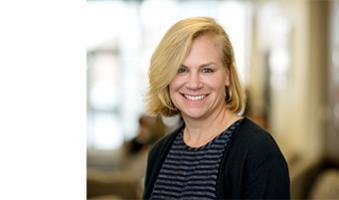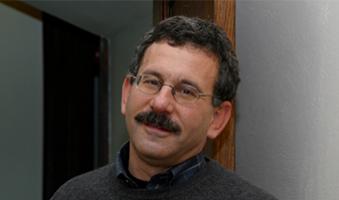Author of the Week: Professor Deborah Challener from Mississippi College School of Law
Professor Challener teaches primarily civil procedure and related courses. She has published several articles on civil procedure issues and is the author of four chapters in Mississippi Civil Procedure. She formerly served as a member of the Mississippi Supreme Court Advisory Committee on Rules and is currently a CALI Civil Procedure Fellow. Professor Challener received her B.A. degree from Oberlin College, her Master’s degree in Public Policy from Vanderbilt University, and her J.D. from the University of Tennessee College of Law. Prior to teaching at Mississippi College School of Law, she taught at the University of Maine and Washburn University, worked for the law firm of Morrison & Foerster in San Francisco and clerked for two federal judges.
Author of the Week: Professor Beth Thornburg from Southern Methodist University Dedman School of Law
Professor Thornburg teaches and writes in the area of civil procedure. Drawing on her experience with civil rights and commercial litigation, her scholarship focuses on the procedural fairness of the litigation process, especially at the pleadings, discovery, and jury charge stages. She also writes and speaks in the areas of comparative procedure, judicial ethics, online dispute resolution, and the intersection of law and culture. Professor Thornburg teaches Civil Procedure, Conflict of Laws, Complex Litigation, Texas procedure, Remedies, and an advanced procedure seminar. To learn more about her, visit her website at https://sites.google.com/site/beththornburg/home.
Lesson Viewed
Researching Judges
This lesson introduces strategies and resources for researching state and federal judges. After completing this lesson, you will feel comfortable researching a judge's educational and professional history, scholarship, prior opinions, and other courts and judges they most frequently cite. It will be useful for prospective and current judicial clerks, law firm summer associates, paralegals, and practicing attorneys.
Lesson Viewed
Removal and Remand: The Basics
This lesson is designed to help students understand the basics of three statutes that govern the removal of civil actions from state to federal court: 28 U.S.C. § 1441 (removal of civil actions), § 1446 (removal procedure) and § 1447 (procedure after removal). It consists of both explanatory text and problems and is divided into three sections. Students can complete all three sections at the same time or do each section separately.
Author of the Week: Allan Stein from Rutgers Law School
Allan Stein is Professor of Law at Rutgers Law School, where he teaches Civil Procedure and Federal Courts. He has also taught as a Visiting Professor at the University of Texas, NYU, Boston University and the University of Pennsylvania. Professor Stein is the co-author of Civil Procedure: Theory and Practice (Wolters Kluwer, 5th Ed) (with Linda Silberman and Tobias Wolff). He has written extensively on personal jurisdiction and related court-access doctrines, including articles in the Yale, Texas, Pennsylvania and Northwestern Law Reviews. He is a graduate of NYU Law School and Haverford College.
Lesson Viewed
Venue
This lesson teaches and reviews the concept of venue, both generally and under federal law. There is also a brief discussion of venue under state law and common law.
Author of the Week: Professor Cynthia Ho from Loyola University Chicago School of Law
Professor Cynthia Ho is the Director of the Intellectual Property Program at Loyola University Chicago. She teaches courses in Intellectual Property, Patent Law, Comparative Patent Law, Policy and Health Care, as well as Civil Procedure. Professor Ho has been a faculty member at Loyola since 1997. In addition, she taught at Emory School of Law during Spring 2005.
Professor Ho strives to foster improved understanding of the law through a variety of means, including traditional publications, as well as providing input to government organizations. She has written articles on various aspects of intellectual property law that have appeared in major law reviews, and been cited in several intellectual property and patent law case books as well as in international reports. She has also authored several interactive lessons in patent law for the Center for Computer Assisted Legal Instruction (CALI), which are available to law students nationwide.
She has made particular contributions in the area of international intellectual property, as well as patent issues involving biotechnology or health policy. For example, she has served as a consultant to the United Nations Convention on Biological Diversity (CBD) on an issue at the interface of international patent law and biotechnology and has provided consultation to the National Institutes of Health (NIH). In addition, she has authored articles on international intellectual property issues in biotechnology for an Encyclopedia on Ethical, Legal and Policy Issues in Biotechnology. She provided input, together with Visiting Professor Matthew Herder, to the South African government regarding proposed regulations that mirror the prop rights (PDF). She also wrote an accessible book on the impact of patent and related rights on access to medicine in the global arena to help scholars and students from a variety of disciplines, as well as policy makers.
In addition to her teaching and scholarship, Professor Ho is involved in mentoring students as they seek educational and employment opportunities in intellectual property law. For example, she works with the Career Resources office to prepare students for the Loyola Patent Interview Program, the largest national interview program for patent jobs. She is also a member of the executive board of the Chicago Intellectual Property Alliance (CIPA), an organization of law firms, corporations and law schools that provides educational opportunities, including "IP Day," which features prominent speakers from the federal government, judiciary, and even international agencies. In addition, Professor Ho co-founded the Chicago Intellectual Property Colloquium, which exposes a select group of students from Loyola and Chicago-Kent to leading academic experts and prominent practitioners in the field. More information on this program is available at www.ipchicago.com.
Prior to joining the faculty at Loyola, Professor Ho was an associate at Fish & Neave (now the Fish & Neave IP group of Ropes & Gray). She handled a variety of matters including litigating high-technology cases involving patents, trade secrets and unfair competition. In addition, as a member of the Patent Bar, she drafted and prosecuted patent applications both domestically and internationally involving medical, immunological and mechanical inventions.
Author of the Week: Professor Nicholas L. Georgakopoulos from Indiana University Robert H. McKinney School of Law
Professor Georgakopoulos produces scholarship in the intersection of business and uncertainty. He is the author of The Logic of Securities Law (forthcoming, Cambridge University Press); Principles and Methods of Law and Economics (Cambridge Univ. Press. 2005), a coauthor of the multi-volume Blumberg on Corporate Groups, and numerous articles that have received broad citation, including by the U.S. Supreme Court.
He is active in the American Law Institute, the American Law & Economics Association, and the European Association of Law & Economics. He is also a founding member of the Midwestern Law & Economics Association and has served as an adviser to the Capital Markets Commission of Greece.
Author of the Week: Professor Linda Jellum from Mercer University School of Law
Linda Jellum is the Ellison C. Palmer Professor of Tax. She teaches Tax Courses, Administrative Law, and Statutory Interpretation. In addition to teaching, Professor Jellum is a prolific scholar and has written extensively in the areas of Tax Law, Administrative Law, and Statutory Interpretation. Her numerous articles have appeared in top law journals, such as the Miami Law Review, the Virginia Tax Review, the UCLA Law Review, and the Ohio State Law Journal. She has also authored multiple books and book chapters on statutory interpretation.
Professor Jellum has been a leader in legal education. She is currently the Deputy Executive Director for the Southeastern Association of Law Schools. Formerly, she served as the Deputy Director for the Association of American Law Schools, and she is currently an officer for the American Bar Association Section’s on Administrative Law and Regulatory Practice.
Before joining the faculty, Professor Jellum worked for the Washington State Attorney General’s Office. While there, she served as lead attorney for the Department of Social and Health Services. Prior to working as an assistant attorney general, she served as a law clerk for the Honorable Paul Yesawich.
Professor Jellum received her J.D. from Cornell Law School and her undergraduate degree from Cornell University. She has the unique honor of having sat for and passed five states’ bar exams.






